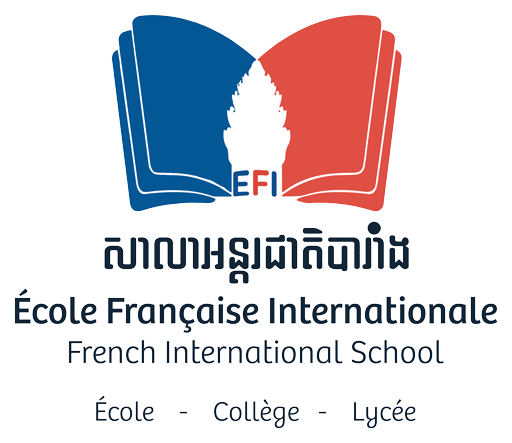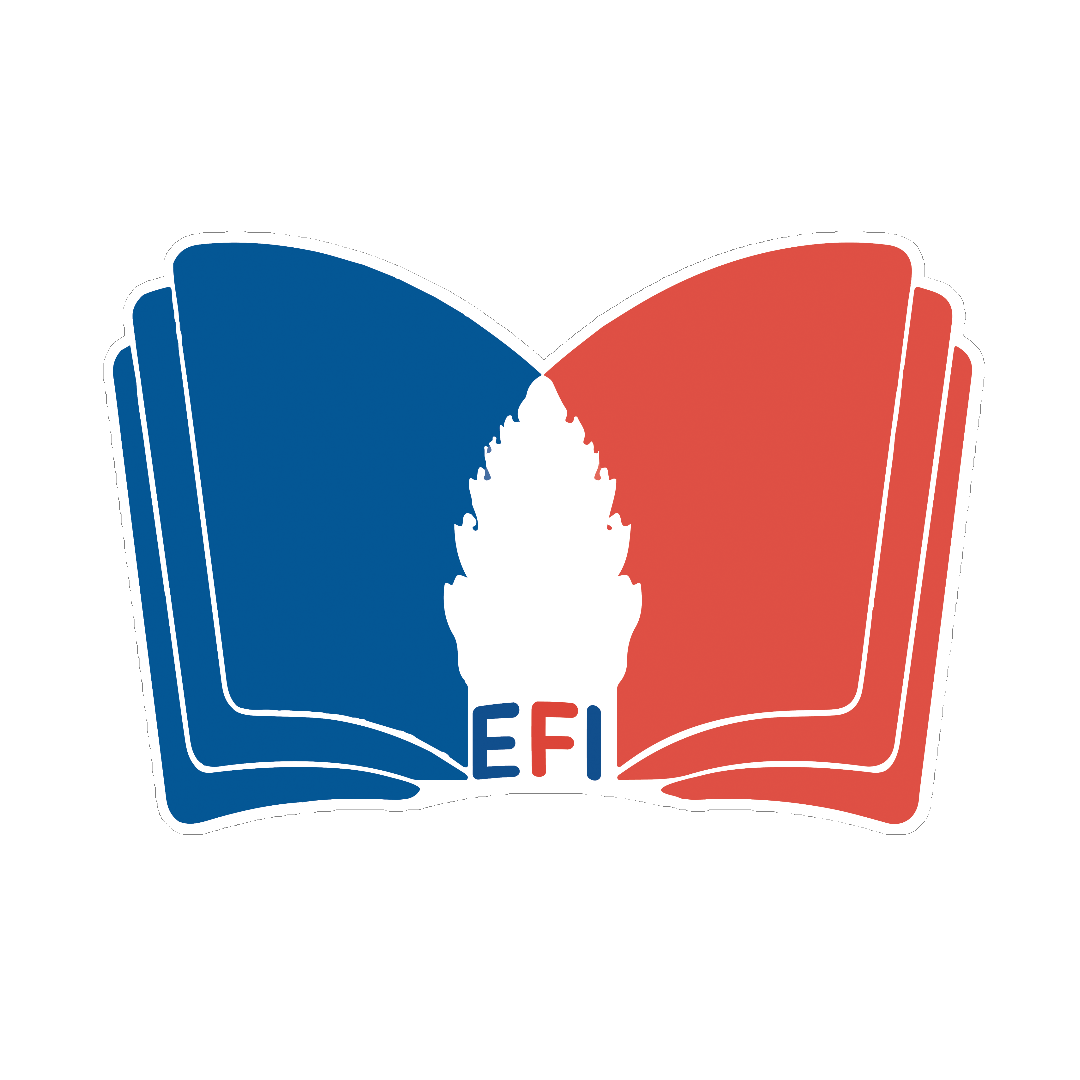វិធីសាស្ត្របង្រៀន
វិធីសាស្ត្របង្រៀន
តើនៅសាលាEFIមានវីធីសាស្ត្របង្រៀនជាក់លាក់ដែររឺទេ ? មាតាបិតាសិស្សតែងតែសួរសំណួរនេះជាញឹកញាប់ ។ ចំលើយនឹងសំនួរនេះមានភាពផ្សេងគ្នាដោយអាស្រ័យលើប្រវត្តិចម្រុះរបស់សិស្ស ។ គ្រូគរុកោសល្យធ្វើកាជ្រើសររើសវិធីសាស្ត្រដ៏សមស្របបំផុតសំរាប់សិស្សម្នាក់ៗទៅតាមបរិបទនៃការសិក្សារបស់ពួកគេ ។
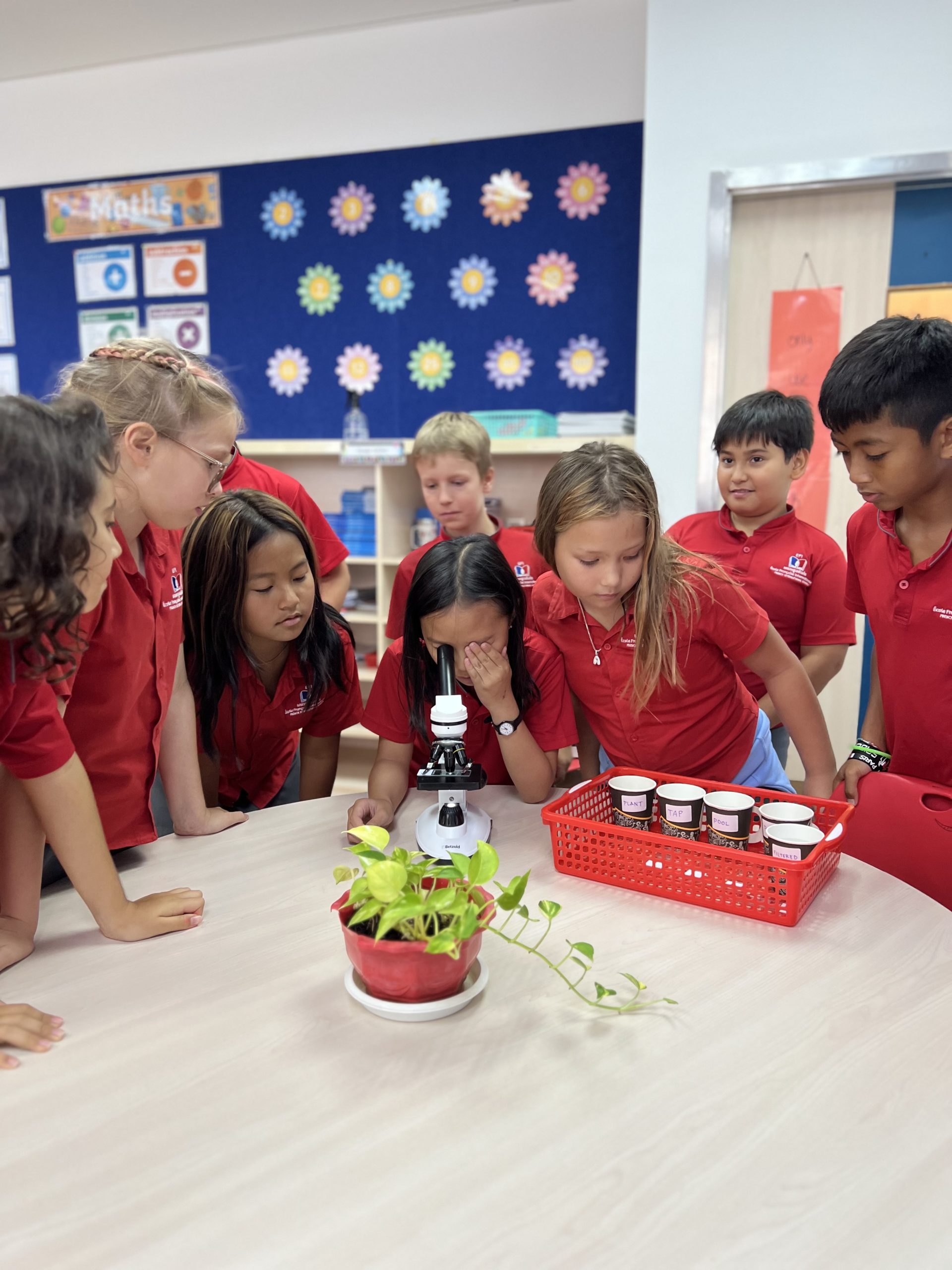
លោកគ្រូ អ្នកគ្រូ អនុវត្តន៍ការបង្រៀនដែលពោរពេញទៅដោយបទពិសោធន៍និងសំបូរបែបរបស់ខ្លួនជាមួយសិស្សផ្ទាល់ ។ ភាពចម្រុះនៃវីធីសាស្ត្រនេះទៀតសោតន៍បាននាំមកនូវការគាំទ្រដល់ប្រយោជន៍សិស្ស បង្កើននិងរំលឹកចំណេះដឹងដែលចេះមកហើយ និងលើកកំពស់ការសិក្សារបស់ពួកគេ ។ នៅគ្រប់ថ្នាក់ទាំងអស់យើងគោរពតាមគោលការណ៍បីជាចំបង :
- ការសិក្សារៀនសូត្រតាមរយ:គំរោង
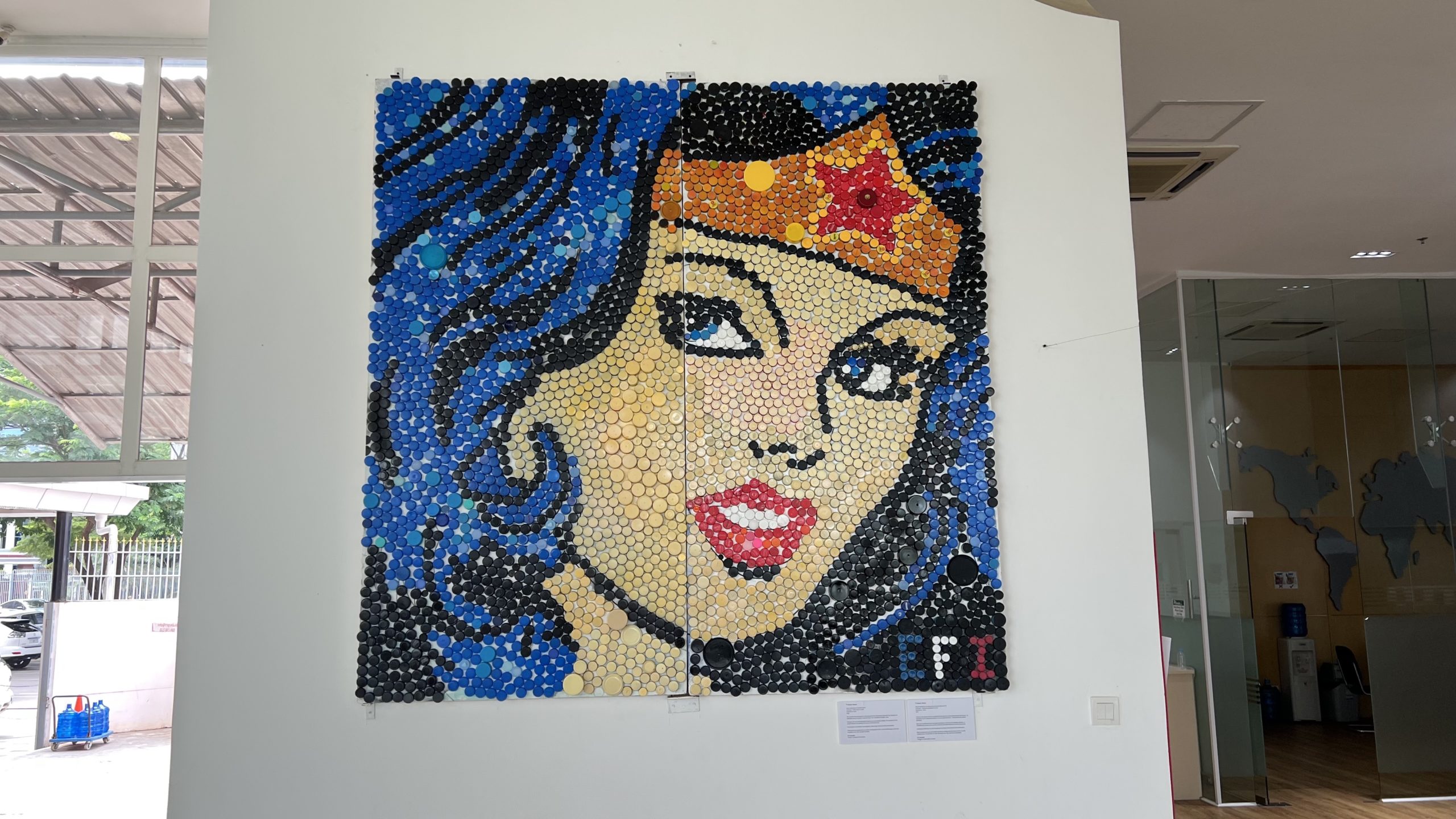
ការធ្វើកិច្ចការជាក្រុមដែលមានគ្រូនាំ រឺដោយខ្លួនឯងជាវិធីសាស្រ្តពិសេសក្នុងការរៀនភាសា ។ ក្នុងកិច្ចការងាររវាងសិស្ស និងការលេងកំសាន្តធ្វើអោយពួកគេចេះដូរបទពិសោធន៍រវាងគ្នាទៅវិញទៅមក ។ កិច្ចការជាក្រុមទាំងនេះបង្រៀនអោយមានការបង្កើននូវភាពស៊ីសង្វាក់គ្នា ការជួបស្គាល់គ្នា ទំនាក់ទំនងផ្ដោះប្ដូរជាភាសាបារាំង រឺអង់គ្លេស ។
នៅក្នុងភាសានីមួយៗដែលសិស្សកំពុងអនុវត្តន៍គឺដើម្បីឈានទៅដល់សមិទ្ធិផលរួមមួយដែលសិស្សអាចប្រើភាសាទាំងពីរបានយ៉ាងស្ទាត់ជំនាញ ។ ក្នុងនោះមានសកម្មភាពរៀនទាក់ទងនឹងផ្ទាំងរូបភាព ខិត្តប័ណ្ណ បណ្ដុំឯកសារ សៀវភៅគំនូរ ទស្សនីយភាព ពិពណ៌ សមិទ្ធិផលសិល្ប: សមិទ្ធិផលវិទ្យាសាស្ត្រ ។ល។ កិច្ចការងារខ្លះប្រើរយ:ពេល1ថ្ងៃ, 1សប្ដាហ៍, 1ខែ រឺ1ត្រីមាស ។ ដូច្នេះតំរូវអោយមានការសហការចូលរួមពីសិស្សានុសិស្សផងដែរ និងការរៀនមានទំនួលខុសត្រូវ ។ សរុបមកគំរោងកិច្ចការនីមួយៗគឺជាការហាត់រៀនដើម្បីអោយសិស្សានុសិស្សបានត្រៀមខ្លួនជាស្រេចចំពោះគ្រប់វិញ្ញាសារ ។
2. ការយកចិត្តទុកដាក់
សិស្សានុសិស្សត្រូវការទទួលអារម្មណ៍សុវត្ថិភាព និងទំនុកចិត្តក្នុងការរៀនសូត្រអោយមានប្រសិទ្ធភាព ។ ពួកគេនឹងមានសេចក្ដីក្លាហានគ្រប់គ្រាន់ក្នុងការបញ្ចេញមតិយោបល់ដោយអង់អាចនៅពេលគ្រូយកចិត្តទុកដាក់ចំពោះពួកគេ ពិសេសចំពោះកិច្ចការដែលត្រូវប្រើភាសាដែលមិនទាន់ស្ទាត់ជំនាញ ។
ការយកចិត្តទុកដាក់រវាងគ្នាមិនត្រឹមតែអនុវត្តន៍រវាងមនុស្សធំប៉ុណ្ណោះទេ កុមារតូចក៏អនុវត្តន៍ផងដែរ ពួកគេចេះស្ដាប់មិត្តភក្ដិដោយយកចិត្តទុកដាក់ ចេះគោរពគ្នា ចេះជួយគ្នាទៅវិញទៅមក ។
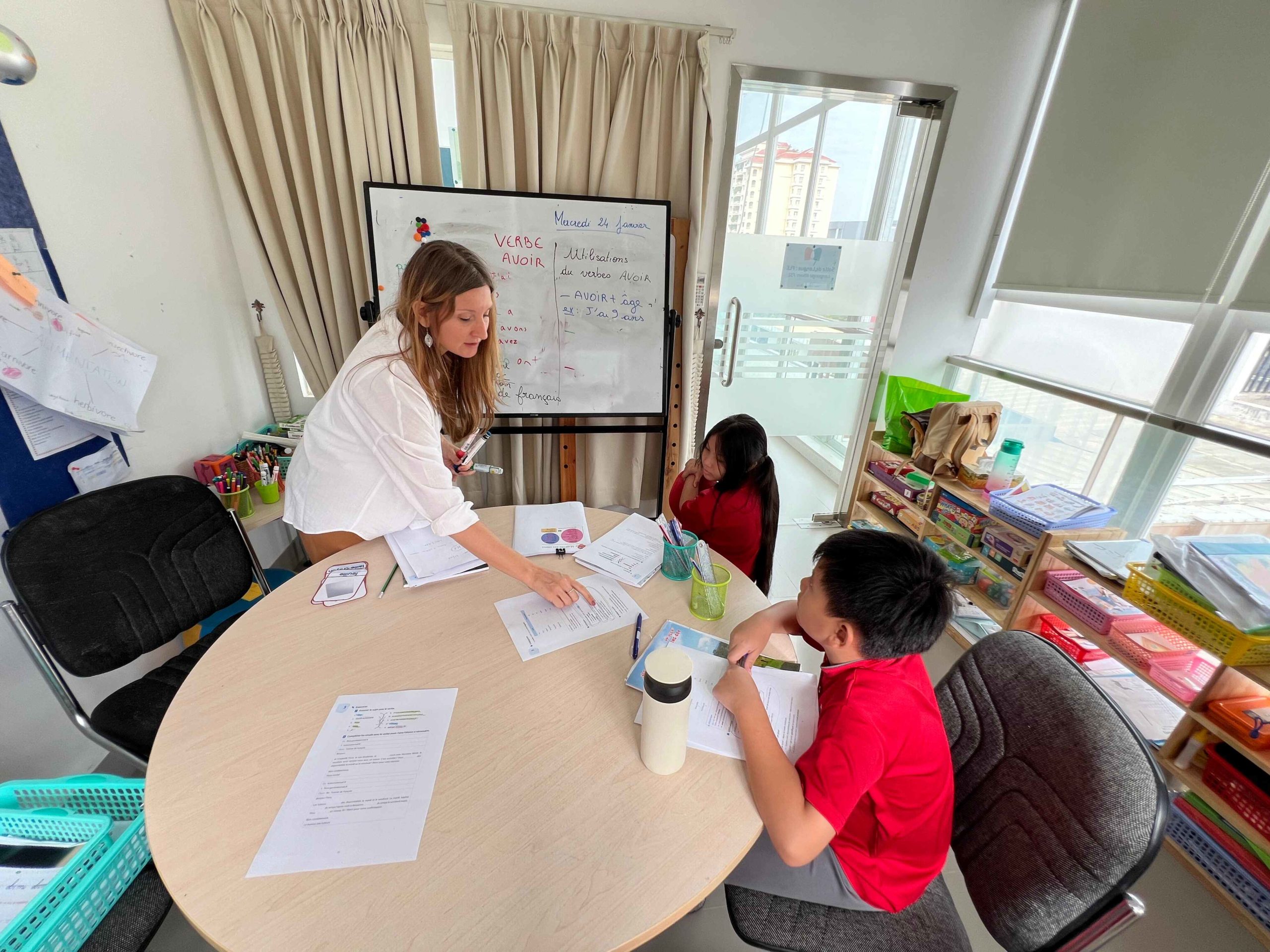
3. ការសិក្សាបែបពហុវិជ្ជា
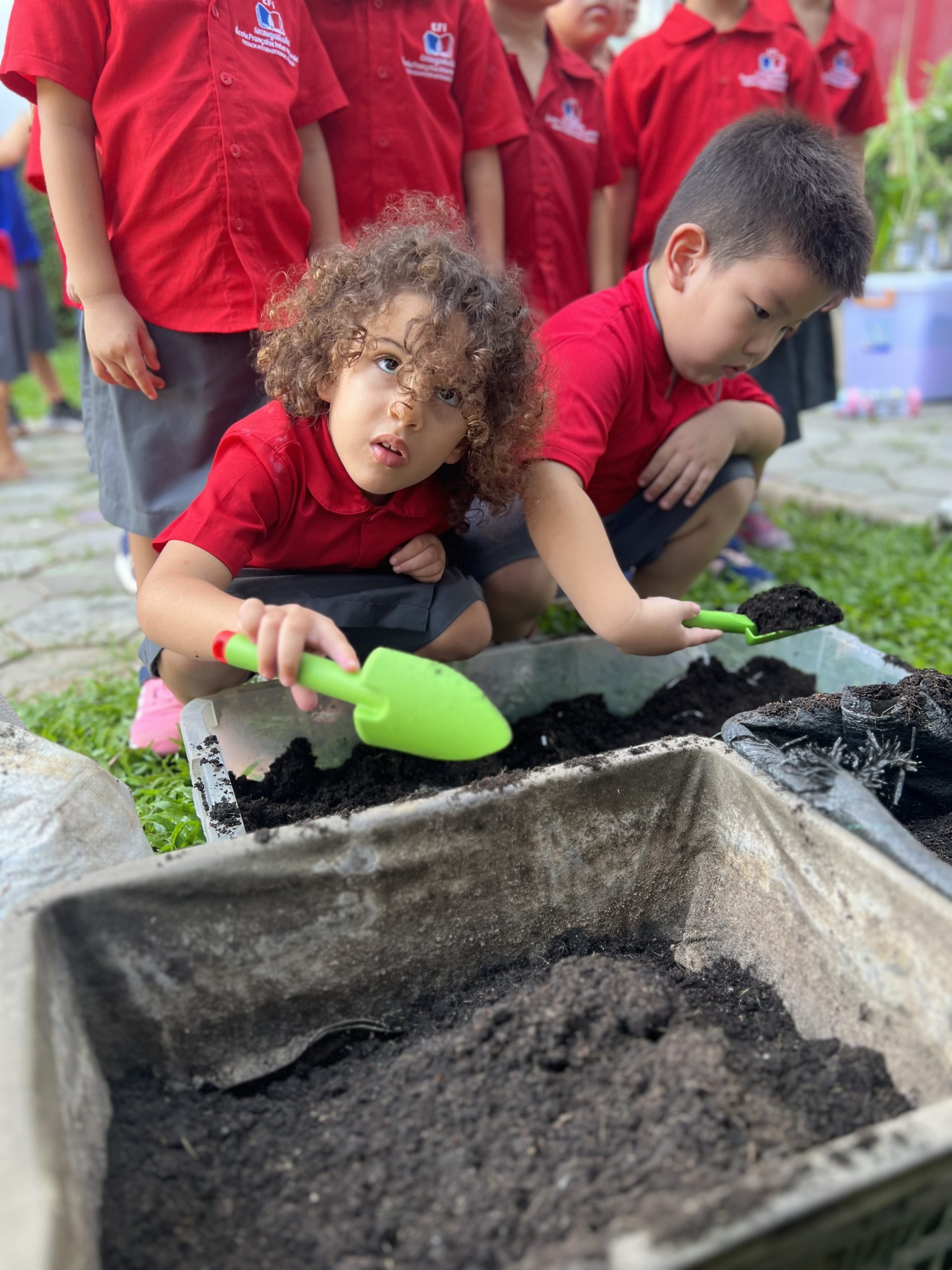
ការសិក្សារៀនសូត្រអាចធ្វើទៅបានតាមវិធីសាស្ត្រជាច្រើន ។ តាមរយ:សកម្មភាពរៀនសិល្ប: កីឡា ការធ្វើដំណើរកំសាន្ត សិល្ប:ចំរុះ រឺពិពណ៌នានាសុទ្ធតែជាយាន្តនៃចំណេះដឹង និងការចេះអភិវឌ្ឍន៍ខ្លួនឯង ។
គុណភាព និងភាពសំបូរបែបនៅក្នុងវិស័យកីឡា សិល្ប: សិល្ប:តន្ត្រីនៅសាលាCISដែលជាដៃគូ ជាប្រភពបំផុសគំនិតវិជ្ជមានសំរាប់សាលា EFI យើង។ ទាំងនេះស្ដែងចេញតាមរយ:ហេដ្ឋារចនាសម្ព័ននៅក្នុងបរិវេណរួមនៃសាលា ។ នៅសាលាយើងខ្ញុំមានគ្រូឯកទ្ទេសទទួលបន្ទុកបង្រៀនយ៉ាងជាក់លាក់លើផ្នែកទាំងនេះជាអាទិភាពមួយនៃការអភិវឌ្ឍន៍ចាប់តាំងពីឆ្នាំ 2020 ។
